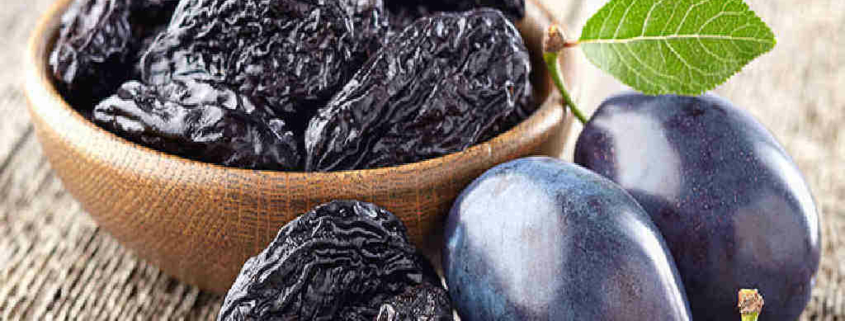Are prunes better for constipation than psyllium?
My mother’s mother, who had lived with us, passed away when I was still quite young, so I don’t remember too much about her. But I do remember the prunes.
Every morning, my Bubbeh (grandmother in Yiddish), would have a handful of prunes with her breakfast. I had a vague sense that it was to help her in the bathroom and it was something that older people just happened to eat regularly—like soup. I’m not sure where these ideas came from, but I suppose I must have seen other older people eating prunes while discussing their digestion. At some point, I had also decided that they were somehow not delicious and politely declined prune-containing desserts when they were infrequently offered to me.
So, you can imagine my surprise when one day, desperate for Hamentashen (Jewish holiday cookies) and finding only prune-filled ones remaining, I decided to go for it and eat the geriatric flavor which turned out to be my new favorite. You can further imagine my surprise when I discovered that prunes are not only delicious, but actually magical.
“a serving of prunes a day helps with constipation more than a similar amount of psyllium fiber”
While doing some reading on constipation for the book I am currently working on, I fell down a rabbit hole of research, with one article leading me to look up another and that article leading me to look up yet another. This path ended at a well-done study published in an obscure journal called “Alimentary Pharmacology and Therapeutics” which showed that a serving of prunes a day helps with constipation more than a similar amount of psyllium fiber (the stuff most often recommended for constipation). The authors of the study were gastroenterologists from the University of Iowa who carefully selected their patients to make sure they didn’t have other diseases and then did something called a “cross over” so that the same people switched and got the same treatments separated by a week. It is a way to compare like to like and probably the best way to do a study where you can’t keep the treatment a secret (called blinding).
Even if the prunes had worked just as well, it should have been big news. But they had actually worked a bit better. Here’s a truly natural and fairly inexpensive way to help with constipation—a problem about 20% of people are thought to suffer with. And yet, ten years on, I hadn’t heard about this miracle cure. Perhaps I had been lacking in my keeping up to date with guidelines? So, I looked up the American Gastroenterological Association guidelines on constipation. Nope. No mention of prunes. Then I went to their website geared towards the lay-person. Surely they would suggest that people pop a couple prunes (more like 12 to be consistent with the aforementioned study) before bringing out the medications. Also no!
Are the authorities on the GI system as biased against prunes as I once was? It would seem so.
This isn’t to say that prunes will work for everyone. The study, while well done, was small in size with only 40 participants, and people who haven’t discussed their constipation with their doctors may need a medical work up to make sure there isn’t a more serious condition underlying the slow stools.
But for now, I’ll be keeping a bag of prunes in my pantry. Just like my Bubbeh did.

